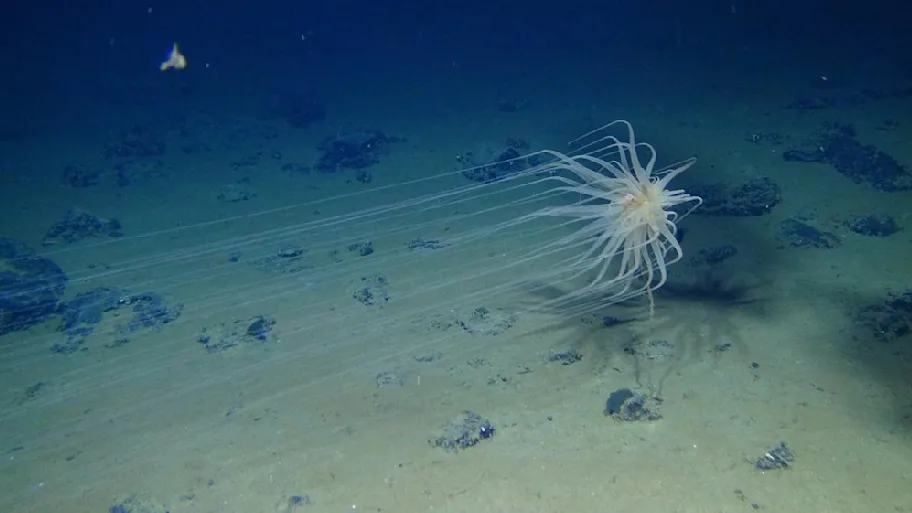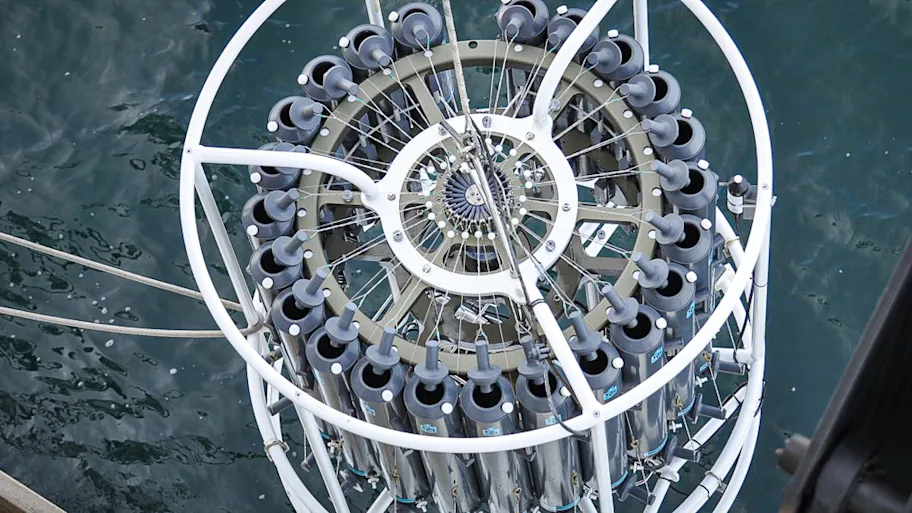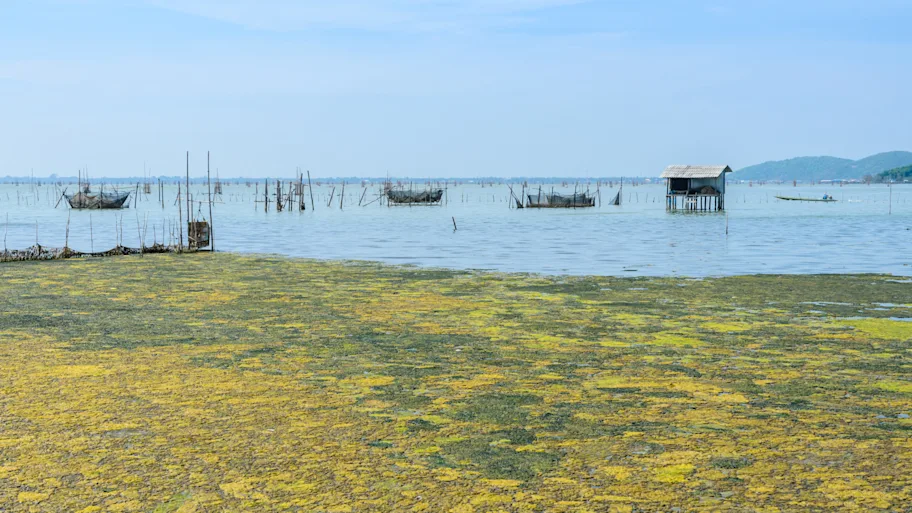
- Science News
- Frontiers news
- Ester Dias – Choose what you love because you may end up doing that for the rest of your life
Ester Dias – Choose what you love because you may end up doing that for the rest of your life
Author: Thimedi Hetti
In celebration of World Ocean Day, we speak with marine scientist Dr Ester Dias, who is currently a research assistant at the Interdisciplinary Centre of Marine and Environmental Research in Portugal, focusing on coastal and estuarine species and their ecosystems. We discuss her influences and journey as a marine scientist, as well as her collaboration with Frontiers for Young Minds, where she did science mentoring.

Photo credit: Ester Dias
Can you tell me about your current role and research?
“I am a research assistant at the Interdisciplinary Centre of Marine and Environmental Research, located in the north of Portugal. Broadly, my main research focuses on coastal and estuarine species because their habitat is highly vulnerable to human impacts such as climate change. My areas of expertise include using ecological markers to study aquatic food web dynamics, fish movements, and habitats, fisheries, and energy flows between ecosystems.”
Were you interested in the ocean and science from a young age? What is your academic background?
“Yes, and I blame wildlife documentaries for that! However, as a child, I was not specifically interested in the ocean, but life in general. I remember going to my backyard and being fascinated by ants, snails, and birds: “Where are they going?”, “What do they eat?”, “How do they communicate?”. Watching wildlife documentaries stimulated my curiosity about the purpose of behavioral patterns in animals, such as the large oceanic and terrestrial migrations. I guess I was always trying to understand the connections between species’ behavior and their environment.
“In terms of my academic background, I have a PhD in Marine and Environmental Sciences, an M.Sc. in Applied Ecology, and a B.Sc. degree in Biology. I am enrolled in an M.Sc. program in Data Science to further advance my knowledge of data interpretation (especially big data) and modelling.”
Did you have any influences as you were growing up? Especially women in science?
“I was the first scientist in my family, so I did not receive any direct influence in choosing this path in my life. In fact, the career prospects were so bad that my closest family members incentivized me to pursue other careers. Still, I persisted. As a child, I was inquisitive, and after I became an independent reader, my parents taught me how to search for answers to my questions (in a time without the internet). So, that and my love for nature are perhaps the main reasons I am a scientist today. When choosing a career, the best advice came from my dad, who told me, ‘Choose what you love because you may end up doing that for the rest of your life.’”
What does it mean to be a woman in science and why is it important to you?
“To me, being a woman in science carries as much responsibility as it carries for men. We must produce sound scientific knowledge to assist management and conservation in guaranteeing a healthy planet for future generations. Nonetheless, my perception is that men still disproportionally occupy more leadership positions than women. In more patriarchal societies, negative discrimination against women persists. However, other reasons may contribute to this inequality, such as differences in how men and women balance family and career.”
Have you faced any obstacles or discrimination because of your gender or age? Equally, when do you feel empowered?
“I never felt any obstacles or discrimination for being a woman in my country, but I did because of my age. For some, I lack the experience to implement an idea or discuss a certain topic and for others, I am too old to apply for certain positions.
“I am empowered when I feel people's enthusiasm when explaining the interesting things I do and see.”
Focusing on Frontiers for Young Minds, how did you get involved and what did your role as Science Mentor entail?
“This initiative was presented to me by a colleague who was already an associate editor. I became involved immediately as a science mentor. My role involved guiding the mentee through the peer review process: how to approach an article with a critical eye for feedback to provide the authors with constructive comments.
“I truly enjoyed working with children and I am constantly impressed by their curiosity and surprise. I probably gained as much from this experience as they gained from me. I am continually learning how to tell the story of a particular topic in a way that is clear and enthusiastic, yet scientifically rigorous.”
Why does it matter to get young children interested in science and what are your hopes for the future?
“In a society populated by misinformation, it is very important to stimulate critical thinking at an early age.
“In the future, I hope to be able to continue doing what I love, which is science, in an environment that merits ideas and its potential to improve society, instead of career stage, gender, or nationality.”

Frontiers is a signatory of the United Nations Publishers COMPACT. This interview has been published in support of United Nations Sustainable Goal 5: Achieve gender equality and empower all women and girls.
About Frontiers
Frontiers is the 3rd most-cited and 9th largest research publisher. We publish groundbreaking discoveries by the world's top experts. Scientists empower society and our mission is to accelerate scientific discovery by making science open. We place the researcher at the center of everything we do and enable the research community to develop the solutions we need to live healthy lives on a healthy planet. Featuring custom-built technology, artificial intelligence, and rigorous quality standards, our research articles have been viewed more than 1.4 billion times, reflecting the power of research that is open for all.






